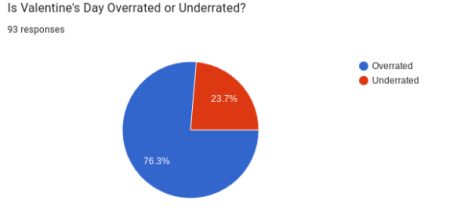Students, Staff Weigh in on Syrian Refugees
December 15, 2015
The effect of Illinois Governor Bruce Rauner’s proclamation to halt the entry of Syrian refugees into the state has reached the eyes and ears of impressionable students through extensive media outlet coverage.
Following the events of the Paris attacks on Nov. 13, a new wave of Islamophobia has blinded the nation that was quick to place the blame on an entire religion rather than the select extremists who had already claimed the act as their own work, the Islamic State of Iraq and the Levant.
“Typically, whenever Islam is mentioned in the media, only overblown, negative things are said and shown, which scares viewers and gives them the wrong impression of Islam and its people as a whole; however, terrorists hail from all religions, but this shouldn’t mean these religions encourage terror,” said Senior Darin Chaichitatorn.
The Islamic State, or ISIS as it is more commonly known and referred to in American media, is a militant group with radical views on the corruption of western nations and the threat that those nations pose to Islamic views.
All while the world fears another attack from ISIS, the Syrian Civil War has been tearing the country apart since the Arab Spring of 2011. Protests against the repressive regime of President Bashar al-Assad, who came into power in 2000, have sparked a schism in the already-weakening nation.
Assad’s rule started during strong period of growth for his country. With a modernized and successful Syria at his hand, he was a strong, respected leader. Yet, at the first sign of dissent from Syrian citizens due to religious rifts, he restricted free speech, and Syria began to lose its democratic political ways.
Peaceful protest died with the demonstrators, and soon rebel groups appeared almost overnight. Sixty thousand Syrian lives were lost in the first 18 months of conflict.
The dispute over Assad’s power can be traced back to the end of World War II. When the Allied powers determined the borders for Middle Eastern nations, they grouped many different religious groups together into nations that did not share the same core values required to grow one single nation.
The Alawite Muslims, such as the Assad family, have been in power for decades in Syria, despite representing less than 20 percent of the population.
The war in Syria is the main reason for civilians fleeing the area, not the threat of ISIS as many Americans believe. More than 4 million people have left Syria, many fleeing to neighboring Turkey, Lebanon, Jordan and Iraq.
“[The refugees] should be allowed into the U.S. because the U.S. is supposed to be ‘the land of freedom’ where people can go and look up to, and possibly begin a new life,” said Sophomore Alex Golebiowski.
Before the attacks in Paris, refugees were coming into the U.S. and seeking safety from war-torn Syria. There was little debate over whether or not to accept them.
This attitude changed after the night of Nov. 13, as at least one of the attackers was reported to have come to Europe as a refugee.
Terrorism has become a hot-button debate for obvious reasons in the U.S. Cautious politicians, such as Rauner, claim there is danger in accepting people of questionable or unknown background into the country.
“Our nation and our state have a shared history of providing safe haven for those displaced by conflict, but the news surrounding the Paris terror attacks reminds us of the all-too-real security threats facing America,” Rauner said in a Nov. 16 press release. “We must find a way to balance our tradition as a state welcoming of refugees while ensuring the safety and security of our citizens.”
Of the 31 states who have said they oppose the acceptance of refugees, New Hampshire is the only state with a Democratic governor.
I think it’s not [Rauner’s] place to speak on it,” said Junior Emily Vastis, “but whatever the government decides to do is the best option.”
While the sentiment of opposing refugee relocation into their state is expressed by those states, they have little power to impose that ideal.
“Although Governor Rauner does not have the authority to close the Illinois border and refuse refugees, the statement by many governors puts political pressure on the State Department to delay the admittance of refugees as well as on Congress to pass laws banning the admittance of Syrian refugees,” said Social Studies Teacher Patrick Gaughan.
As the Supreme Court explained in Hines v. Davidowitz, “the supremacy of the national power in the general field of foreign affairs, including power over immigration, naturalization and deportation, is made clear by the Constitution.”
“Our nation has always been about helping people in times of need, sometimes for the wrong reasons, but generally, there have been good intentions,” said Junior Eric Dunevant, “I think it’s our responsibility to take refugees in, but to what point?”
There is an obvious schism between political parties. Students and younger generations often side with the Democratic Party, which takes a more accepting attitude toward the crisis.
“As long as they don’t do anything unusual within the community, might as well,” said Senior Jasper Chang.
States that have said they will accept refugees include Colorado, Connecticut, Delaware, Hawaii, Pennsylvania, Vermont and Washington.
There is no quick fix to satiating the needs of the refugees for a safe haven, protecting American society from the threat of terror and combatting a war that the United States has no business intervening in.
“I suggest that we write to our congressmen and governors urging them to support accepting more refugees,” said Chaichitatorn. “Another action people can take is to donate to various organizations and funds, such as the Syrian Children’s Relief Fund, which provides protection and basic necessities to Syrian refugee children.”

